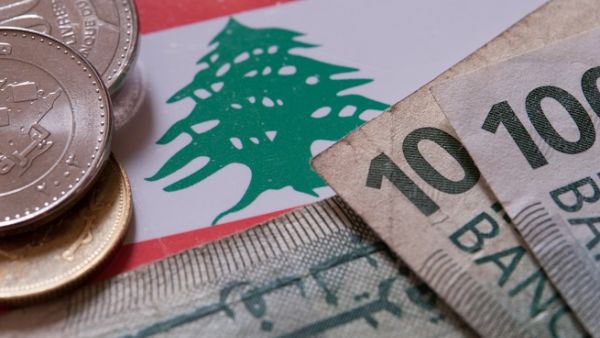The market is eagerly waiting for the implementation of reforms by the government of Prime Minister Saad Hariri before reducing the interest rates which have reached high levels over the past three years, bankers and economists said.
After three days of intensive and heated deliberation by the Parliament, 111 MPs gave the vote of confidence to the new Cabinet, which will come under scrutiny not only by the rival political groups but also by the international community.
Observers were expecting the new Cabinet to secure a comfortable vote of confidence in Parliament but the biggest challenge awaiting the ministers is the reduction of the fiscal deficit by 1 percent each year.
On Feb. 3, Moody’s Investors Service applauded Lebanese officials for having formed a new government, saying the move paves the way for fiscal reforms.
“The announcement is credit positive because we expect that the new government will implement necessary fiscal reforms to unlock the $11 billion five-year investment package committed by international donors during the [CEDRE conference] in April last year,” a statement released by Moody’s said.
Last month, Moody’s changed Lebanon’s long-term investment rating to one that “indicates poor quality and very high credit risk.
“Lebanon’s rating is now on par with countries including Iraq, Gabon and Zambia,” a statement said at the time.
Hariri has promised to deliver on his reform promises in a short period of time in a bid to draw the soft loans pledged by the CEDRE conference for Lebanon’s ailing economy and aging infrastructure.
Read More
Lebanon’s Hariri: Lebanon is in a 'make or break' situation to escape economic collapse
Lebanon’s New Government to Implement Economic Reforms Suggested by Donors
But until this happens, the interest rates on both Lebanese pound and U.S. dollar deposits will remain high.
“We need to understand why the interest rates so far are not going down. Some of the depositors prefer to keep their accounts in dollars until they notice clear cut action by the government in terms of implementing reforms.
“The Central Bank is offering dollars to the market but the supply is not too big,” Fadi Osseiran, General Manager of Blominvest Bank, told The Daily Star.
Citing an example, Osseiran said that at one point, the interest rate on the Lebanese pound was 24 percent, adding that the market took its time to reduce these rates.
“You can’t expect the market to slash the interest rates immediately. It needs to see a signal from the Cabinet that reforms are being implemented before adjusting the interest rates,” he added.
To beef up their deposits in both currencies, a number of leading banks have offered 15 percent rates on one-year Lebanese pound deposits and 10.25 percent for one-year dollar deposits - but these offers only apply to large amounts of cash.
Osseiran assured that banks are now avoiding offering high interest rates for long-term deposits because they feel that these rates will eventually fall once the government starts implementing reforms.
Some bankers, who spoke on condition of anonymity, admitted that BDL is keen to not meet all the substantial orders for dollars from the bank clients.
“If a client asks his bank to withdraw millions of dollars to complete a commercial transaction or order a big shipment of fuel oil, BDL will request the lender to pay the large amount in installments. In other words, if the client asks for the transfer of $100 million from his account, the bank will persuade him to take the money in stages and not in one shot,” one banker explained.
A source close to the Central Bank told The Daily Star that the market needs more time to react to reforms made by the government.
“It’s true that the prices of the Lebanese Eurobonds have fallen again despite the formation of the Cabinet, but this is normal because it’s still waiting for serious action by the Cabinet,” the source said.
They stressed the interest rates in Lebanon are still lower than countries with the same classification by the international rating agencies.
“In some cases, Lebanon, which is B-, is offering interest rates that are lower than countries with BBB or BB-. The trend in most developing countries is to not reduce the interest rates at this stage. But I can assure that the interest rates in Lebanon will eventually drop in the future,” the source said.
They added that the market is also closely monitoring the measures by the Finance Ministry to reduce the budget deficit and in light of these measures, the interest rates will drop.
But some economists claim that BDL is only interested in piling up the dollar reserves, which mostly come from the Lebanese commercial banks.
“BDL has close to $130 billion of commercial bank assets in the form of Eurobonds, treasury bills, Certificate of Deposits and others and this represents close to 70 percent of the entire assets of the entire banking sector,” one economist said, adding that the high interest rates is a cancerous phenomenon in Lebanon and must come to an end for the sake of the country.
High interest rates will only harm the productive sectors that will be deprived of long-term soft loans from the commercial banks, the economist said.
They added that BDL has included $5 billion in sovereign Eurobonds in its foreign currency reserves which is estimated at $40 billion.
“BDL can’t use the Eurobonds because they belong to the state and are frozen for a number of years,” the economist said.
By Osama Habib








